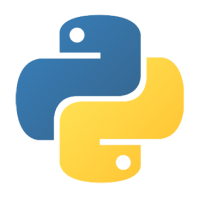Python Essentials
Variables, control flow, functions, and notebooks—clean, modern patterns you’ll reuse everywhere.
 FoundationZ — Data Science Course
FoundationZ — Data Science Course
The perfect on-ramp to Python for analytics. Master core syntax, data wrangling, plotting, and best practices—so you’re ready to thrive in MachineZ (and on the job).

A hands-on, beginner-friendly path that sets you up for Machine Learning success.
Variables, control flow, functions, and notebooks—clean, modern patterns you’ll reuse everywhere.
Import, clean, join, pivot, group, and summarize data with confidence and speed.
Tell clear stories with Matplotlib/Plotly—bar/line/scatter, small multiples, and publication-ready charts.
Reproducible environments, tidy project structure, and reporting so your work is easy to share.